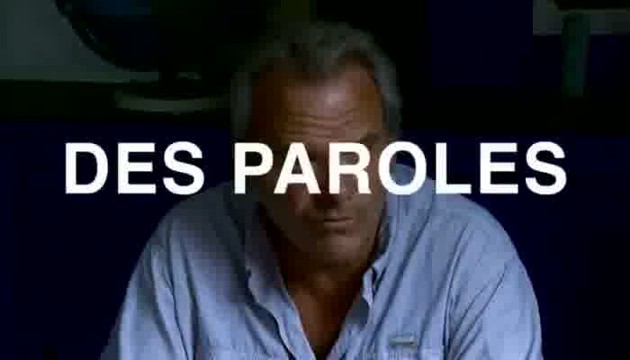Reżyseria:
Jean-Luc GodardScenariusz:
Jean-Luc GodardObsada:
Élisabeth Vitali, Louma Sanbar, Patti Smith, Quentin Grosset, Christian Sinniger, Blandine Bellavoir, Adolf Hitler (m.a.), Odile Schmitt, Bob Maloubier (więcej)Opisy(1)
Film is composed of three movements. The first movement, Des choses comme ça ("Such things") is set on a cruise ship, featuring multi-lingual conversations among a medley collection of passengers. Characters include an aging war criminal, a former United Nations official and a Russian detective. The second movement, Notre Europe ("Our Europe"), involves a pair of children, a girl and her younger brother, summoning their parents to appear before the "tribunal of their childhood", demanding serious answers on the themes of liberty, equality, and freedom. The final movement, Nos humanités ("Our humanities") visits six legendary sites: Egypt, Palestine, Odessa, Hellas, Naples, and Barcelona. (oficjalny tekst dystrybutora)
(więcej)Materiały wideo (1)
Recenzje (2)
The film demonstrates that Jean-Luc Godard is capable of filming even in today's time, that he hasn't remained in the past, but his style is just so peculiar to me that I don't enjoy watching similar films. I feel there is a deeper thought here, but the form makes me not want to look for it. As an experiment, it is interesting, but as a statement, it is rather empty in my opinion.
()
According to Lyotard, the collapse of the "grand narratives" of modernity was accompanied by mourning - the mourning of the "postmodern" people at the end of the century over the certainties that those grand unifying stories of emancipation, freedom, and progress offered them. Here we can see the collapse of one of these grand narratives twice over - not only the collapse of the story of freedom and equality, the socialist ideal and a better society, but also the collapse of the linearly narrated film story, of a film unified by a certain principle (whether it is the bourgeois Hollywood dream of the main characters' crucial role, whose motivations unify the plot, or another weakened form of unification, such as a certain message, the chronology of events, logical causality of the story, etc.). If we return to the aforementioned mourning, it is clearly evident that it returns to us twice over. Not only within Godard's message, the lamentation over Europe's betrayal of its ideals, its effort to change and become better, but again purely within the framework of the film and its form - after all, what else but this mourning can "connect" (since I cannot use the word unify...) the individual fragments, caesuras, and singular fragments that the film is composed of other than this sad yet liberating human and film mourning?
()
Galeria (22)
Photo © Stadkino Filmverleih



Reklama